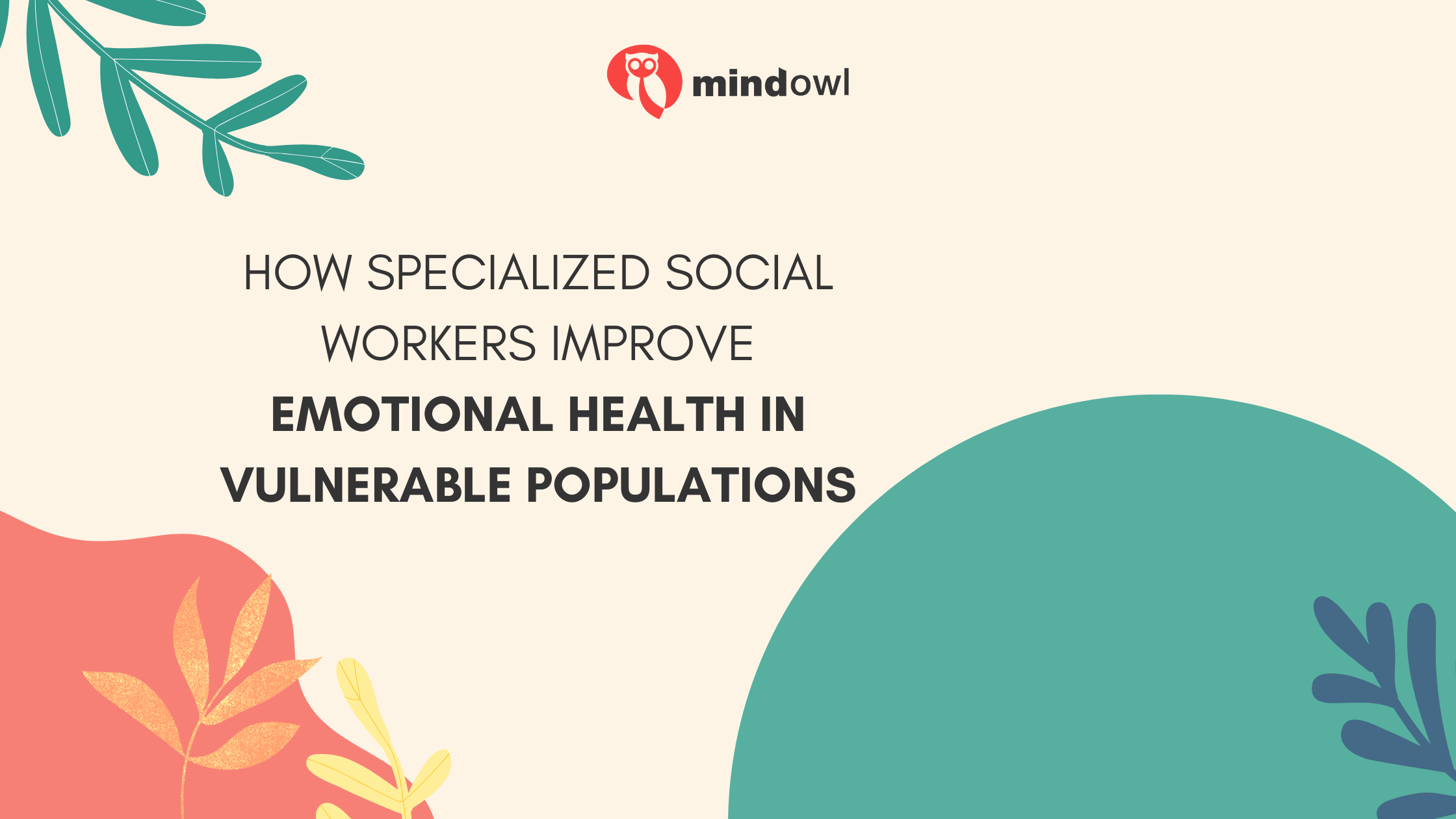Social workers, like nurses, have the opportunity to specialize almost endlessly. Not only does this add depth to an already incredibly rewarding profession, but it also helps them better serve their communities.
People arrive on a caseworker list for a wide range of reasons. One degree or a single certification isn’t enough to properly capture all of those unique needs. In this article, we take a look at how specializing can help communities. We also examine what it takes to get these unique qualifications.
How Specializing Can Help Communities:
A family struggling to stay together. Someone who suffers from addiction trying to keep their life on track. A recent parolee looking for a fresh start. An older adult who needs help navigating the complexities of the healthcare system. What do all of these people have in common? They can all benefit from the services of a social worker. But that’s about all they have in common. One degree can hardly be expected to cover all of these needs. So how does it work?
All social workers start at basically the same spot. Most begin with a Bachelor’s degree in Social Work (BSW) from an accredited program. This four-year degree provides a foundation in human behavior, social welfare policy, and ethics. Students complete supervised fieldwork to gain practical experience. Many states also require passing the Association of Social Work Boards (ASWB) exam to become licensed.
With a BSW and initial licensure, social workers can obtain entry-level positions. These often include case management roles in community organizations. Some work as assistants in mental health clinics. Others find positions in residential treatment facilities. Many serve as coordinators for social service programs. These jobs typically involve connecting clients with resources and providing basic support.
To work in other fields, you will need to strengthen your credentials, either through advanced certifications or graduate school. In the next few headings, we will take a look at what that process looks like and how you can get started with it.

How to Specialize
The next rung on the ladder for many people is graduate school. MSW degrees (master’s of social work) can be earned in 2-3 years in most cases. This is where you can get really granular, focusing on what aspects of the work interest you the most.
For example, if you are interested in psychiatric care, you might specialize in clinical social work with a focus on mental health treatment. This path can lead to becoming a Licensed Clinical Social Worker (LCSW). The credential allows you to provide therapy and diagnose mental health conditions. Many LCSWs work in hospitals, private practice, or specialized treatment centers.
On the other hand, if you are passionate about helping children, you might become a child welfare social worker.
Child welfare social workers help take children out of abusive environments, connecting them with food, shelter, and other resources that they need to live healthy lives. You can actually do this job as a caseworker with only a bachelor’s degree. However, if you are interested in a leadership position, you’ll need to get that master’s. Program directors oversee entire departments of child welfare services.
Getting a graduate degree is expensive but there are a couple of things to keep in mind. One, it will pay for itself in the form of increased pay. To that end, the sooner you do it, the better your return will ultimately be. That doesn’t mean that older social workers should feel discouraged. It does mean that the less any social worker procrastinates, the better off they will be.
The other thing? You may get really good tuition assistance, both in the form of employer benefits and various grants and scholarships. Many social service agencies offer education reimbursement programs.
Choosing Your Path
Some people will go right into their MSW after getting their undergraduate degree. That’s actually not a bad move if you know what you are doing. For one thing, it’s a good way to fast-track your career and start earning better money right off the bat. Many employers offer higher starting salaries to MSW graduates.
Naturally, it can also lead to increased job satisfaction. Instead of starting at the bottom, you begin with a career that you really care about right away. You’ll have more responsibility and autonomy from day one.
Of course, that only works if you are able to accurately identify the right specialization. It can be really hard to do that without having worked as a social worker before. Many students change their focus after field placements.
You might think you are really passionate about healthcare services, but what if, after spending a few years in the trenches, you fall in love with child welfare? It happens to many people, but you’ll only seek that opportunity out if you’ve got a little bit of experience first. Working in the field provides invaluable perspective about what you truly enjoy.
Conclusion
As a social worker, you naturally want to have the biggest possible impact. This impulse might lead you to choose the most distressed communities you can find and figure out a way to serve them. Many the social workers, nurses, and teachers have done exactly that.
And it’s perhaps this mentality that has led all three professions to experience such incredible shortages.
Here’s a secret—social workers, simply by doing their jobs, are heroes. Every single one of them. You don’t need to make any sort of special effort to select an in-demand career path. What you should do is pick the job that you can do with passion.
Specialize, sure—if that’s where your interests lie. At the end of the day, though, remember that the object is to choose a job that you can stick with for decades. That’s the very best way you can serve the distressed members of your community—whoever they might be.
MindOwl Founder – My own struggles in life have led me to this path of understanding the human condition. I graduated with a bachelor’s degree in philosophy before completing a master’s degree in psychology at Regent’s University London. I then completed a postgraduate diploma in philosophical counselling before being trained in ACT (Acceptance and commitment therapy).
I’ve spent the last eight years studying the encounter of meditative practices with modern psychology.

